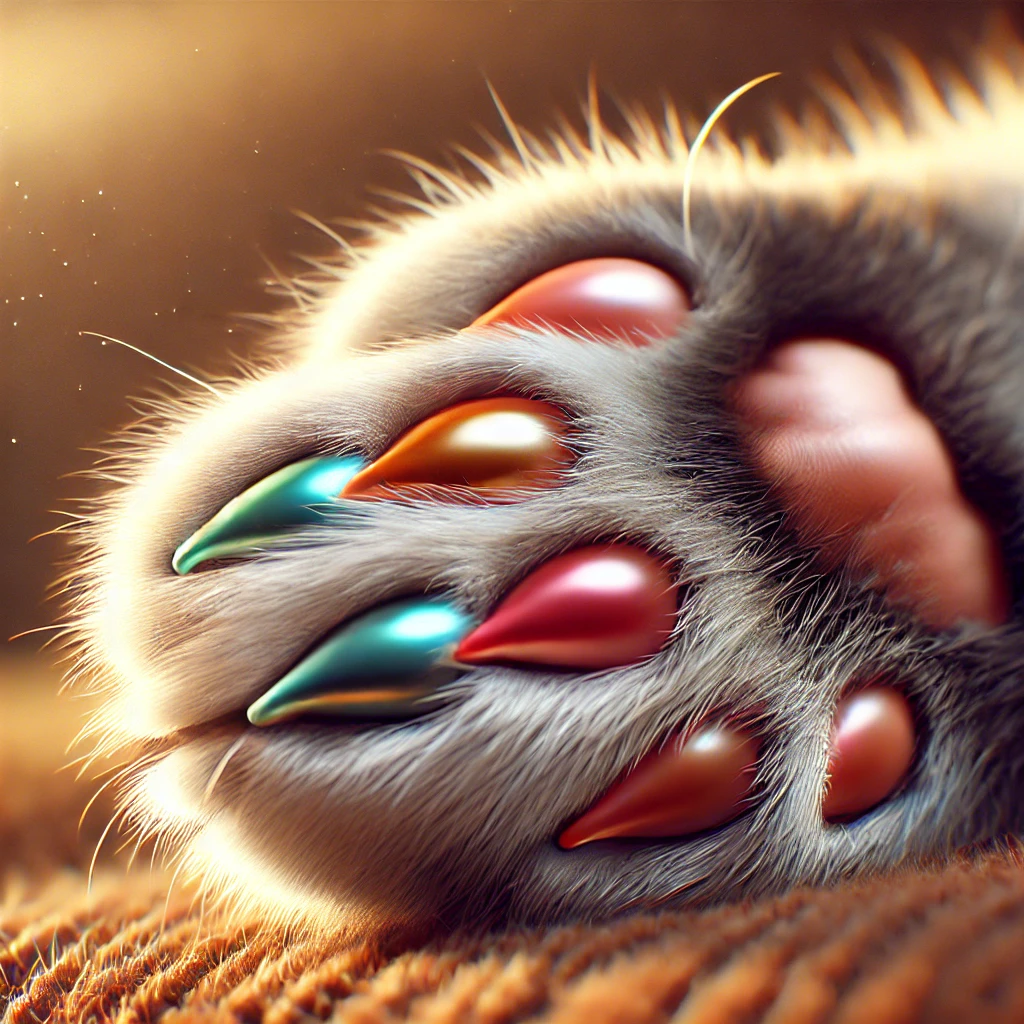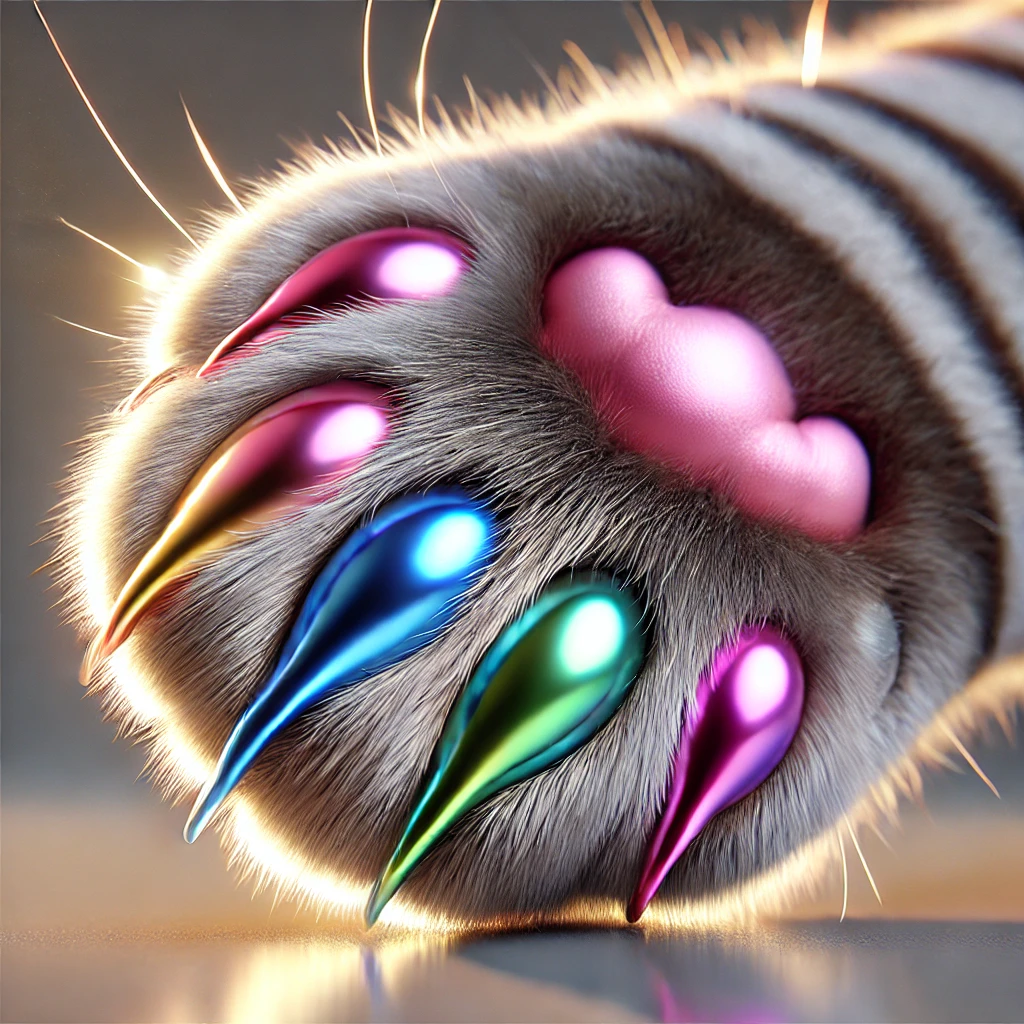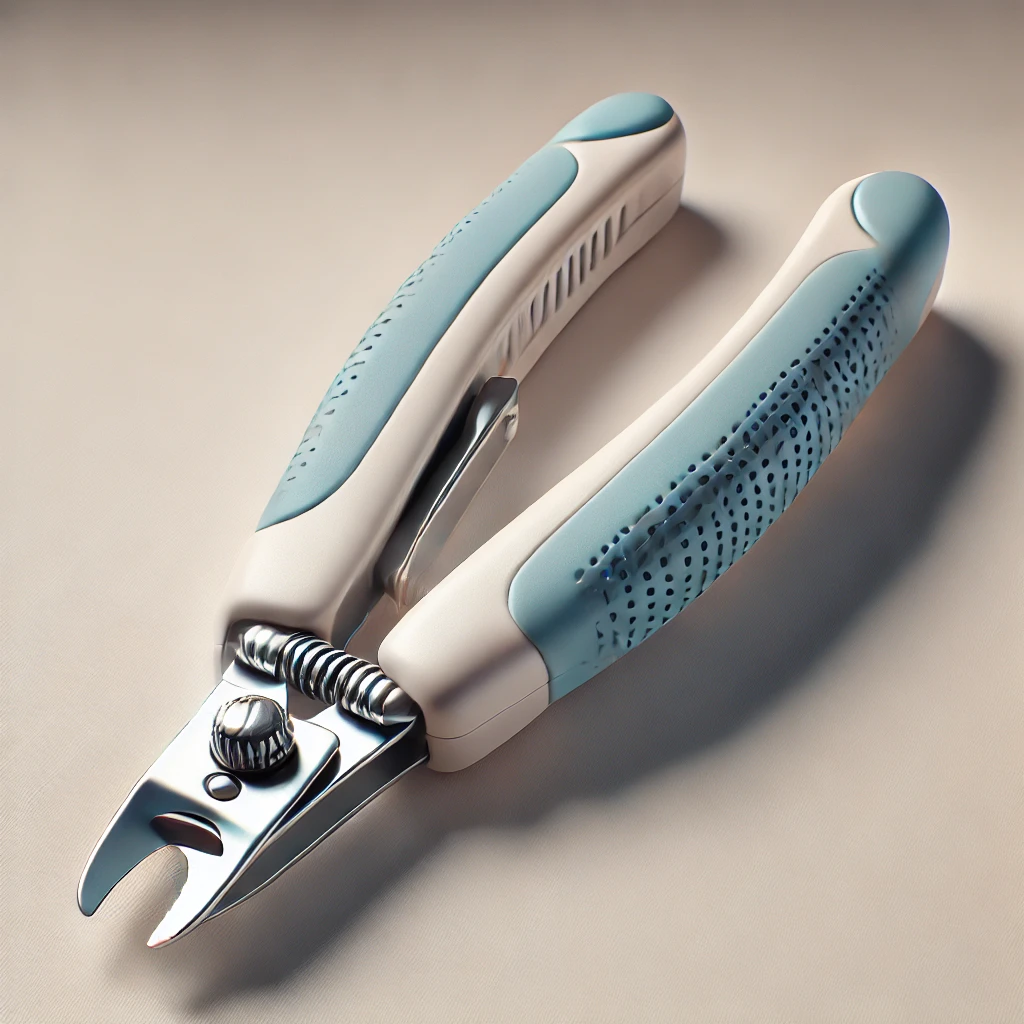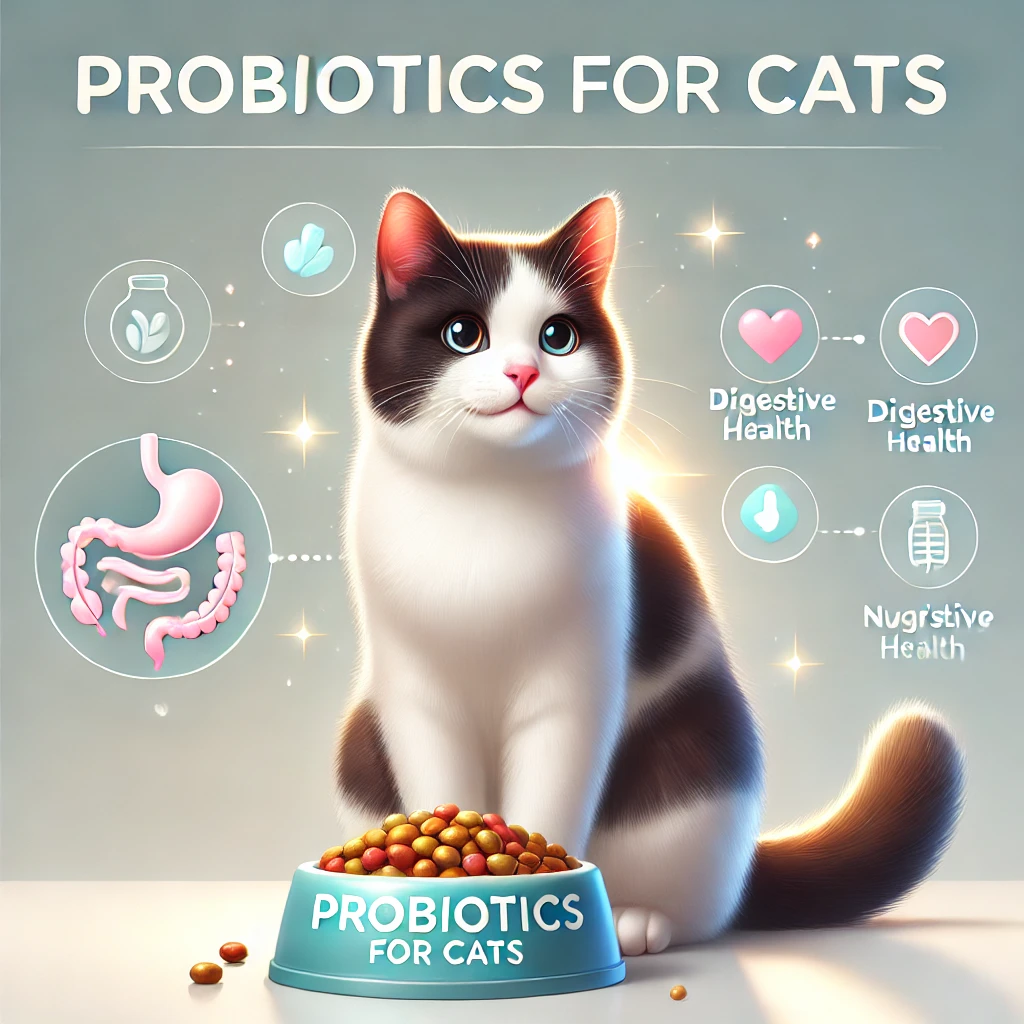Probiotics are becoming increasingly popular for humans, but they can also provide substantial benefits for our feline companions. These microorganisms, often referred to as “good bacteria,” play a pivotal role in maintaining a healthy balance within your cat’s digestive system. Probiotics can be found in various supplements, fermented foods, and even specific commercial cat diets.
Table of Contents
Cats, like humans, rely on a diverse and balanced microbiome to ensure optimal health. The gut microbiome, a collection of trillions of bacteria, fungi, and other microbes, significantly impacts a cat’s digestion, immunity, and overall well-being. By introducing probiotics into your cat’s routine, you can enhance their health in several ways.
The concept of probiotics isn’t new, but their application in feline health is a growing area of interest for both pet owners and veterinarians. This guide explores the importance, benefits, types, and usage of probiotics tailored specifically for cats.
Definition of Probiotics
Probiotics are live microorganisms that, when consumed in adequate amounts, confer a health benefit to the host. For cats, these beneficial bacteria help to maintain a healthy gut flora by balancing the levels of good and bad bacteria in the digestive system. The most common strains include Lactobacillus and Bifidobacterium, which are often included in supplements and some pet foods.

These bacteria support digestion, nutrient absorption, and immune system function. The primary goal of probiotics is to restore balance, especially after disturbances such as illness, antibiotic treatments, or dietary changes. When administered correctly, probiotics can help address a range of health issues in cats, from minor digestive troubles to more significant conditions like inflammatory bowel disease.
Importance of Gut Health in Cats
A healthy gut is essential for your cat’s overall health. The gut does more than just digest food; it also serves as a frontline defense against infections and plays a role in mood and behavior. An imbalanced gut microbiome can lead to issues like diarrhea, constipation, and weakened immunity.
Cats can experience disruptions in their gut health due to poor diet, stress, illness, or medications like antibiotics. Probiotics can replenish the good bacteria, improving gut function and enhancing your cat’s quality of life. By maintaining a healthy gut microbiome, you not only support your cat’s digestive health but also promote their emotional and physical well-being.
Probiotics offer several benefits for cats, particularly when it comes to digestive and immune health. They help restore balance to the gut microbiome, which can be disrupted by a variety of factors such as stress, illness, or antibiotics. By introducing beneficial bacteria into the gut, probiotics support not only digestion but also other bodily systems. Regular use of probiotics can help improve overall health and prevent certain conditions.
Digestive Health Improvement
One of the primary reasons to use probiotics for your cat is to promote better digestion. Probiotics support the growth of beneficial bacteria in the gut, helping to maintain a healthy balance. This can reduce symptoms like bloating, gas, constipation, and diarrhea. Probiotics are especially beneficial after your cat has been on antibiotics, which can often disrupt the natural gut flora. By replenishing the beneficial bacteria, probiotics can restore digestive function and reduce gastrointestinal distress.
In addition, probiotics can assist with chronic digestive issues such as inflammatory bowel disease (IBD) or food intolerances. These conditions can cause discomfort, vomiting, and diarrhea. Probiotics can help to reduce the severity of symptoms, improve nutrient absorption, and help cats feel better overall.
Strengthening the Immune System
The gut is a critical part of the immune system, with a significant portion of the body’s immune cells residing in the digestive tract. By maintaining a balanced microbiome, probiotics can help support the immune system. A healthy gut microbiome plays a role in preventing harmful pathogens from entering the body and can enhance the production of anti-inflammatory cytokines, which are important for regulating immune responses.
For cats with compromised immune systems or those prone to infections, probiotics can provide an additional layer of defense. They can help your cat fight off illness more effectively by promoting a balanced gut environment, thus supporting overall immune function.
Behavioral Benefits
Recent studies suggest that gut health may play a role in a cat’s behavior. The gut-brain axis, a communication network between the gut and the brain, is thought to influence emotional and behavioral responses. Cats with a disrupted gut microbiome may experience behavioral changes such as anxiety, aggression, or reduced activity levels.

Probiotics may help to restore balance in the gut and improve mood by supporting the production of neurotransmitters like serotonin, which influence mood and behavior. Cats with stress-induced behavioral issues, such as urinating outside the litter box or excessive grooming, may benefit from probiotics. By addressing the root cause, probiotics can help improve their emotional well-being.
Types of Probiotics for Cats
There are several types of probiotics available for cats, each offering different strains of beneficial bacteria. The key to finding the best probiotic for your cat lies in understanding these options and their respective benefits. While most probiotics contain strains that aid digestion and immune health, the specific bacteria used can vary in their effects and potency. Below are the main types of probiotics that are commonly recommended for cats.
Lactobacillus and Bifidobacterium
Lactobacillus and Bifidobacterium are among the most well-known and widely used probiotic strains. These bacteria are often found in supplements and some types of pet food. Lactobacillus strains, such as Lactobacillus acidophilus, are effective at promoting a healthy digestive environment by breaking down food and facilitating the absorption of nutrients. They also help to prevent harmful bacteria from overgrowing in the intestines, ensuring a balanced gut flora.
Bifidobacterium is another commonly used strain, often included in probiotic formulations designed to support overall gut health. These bacteria help maintain the integrity of the intestinal wall, preventing the entry of harmful pathogens. Additionally, Bifidobacterium strains are effective at regulating bowel movements and alleviating constipation and diarrhea.
Both Lactobacillus and Bifidobacterium contribute to a balanced microbiome, and they are often used together in probiotic blends for enhanced digestive support.

Yeast-Based Probiotics
Yeast-based probiotics, such as Saccharomyces boulardii, are another effective option for supporting your cat’s digestive system. While bacteria-based probiotics are more commonly discussed, yeast probiotics also offer numerous benefits, particularly in cases of gastrointestinal distress caused by antibiotics or diarrhea. Saccharomyces boulardii has been shown to promote the growth of beneficial bacteria, enhance the gut barrier function, and reduce the effects of harmful bacteria.
Yeast-based probiotics can be particularly useful for cats who suffer from chronic diarrhea or have recently undergone antibiotic treatment. This type of probiotic may help restore gut health and prevent future digestive issues. They can also support the immune system by stimulating the production of beneficial compounds that promote immune function.
Spore-Based Probiotics
Spore-based probiotics are becoming more popular for their ability to withstand harsh conditions, including stomach acid, which can often destroy weaker probiotic strains. These probiotics contain spores from specific bacteria, such as Bacillus subtilis or Bacillus coagulans, which can survive the digestive tract’s acidic environment and reach the intestines intact. Once in the intestines, these spores “wake up” and begin to colonize the gut, where they contribute to balancing the microbiome.
Spore-based probiotics are often used for cats with more severe gastrointestinal issues or those who may have trouble tolerating other probiotic forms. Because of their robust nature, spore probiotics are especially valuable for maintaining gut health in cats with digestive sensitivities.
How to Choose the Right Probiotics for Your Cat
Choosing the right probiotic for your cat requires careful consideration of several factors. Not all probiotics are created equal, and what works for one cat may not be suitable for another. Here are some essential guidelines to help you select the best probiotic for your feline friend.
Understanding Labels and Ingredients
When selecting a probiotic for your cat, it’s important to read the label and understand the ingredients. Look for products that specify the type and strain of probiotics included, as well as the concentration (often measured in CFUs, or colony-forming units). This information ensures that the product contains a sufficient quantity of live bacteria to be effective.

Also, be mindful of any additional ingredients. Some probiotics contain prebiotics (fibers that feed beneficial bacteria), and while these can enhance the effectiveness of the probiotic, some cats may have sensitivities to certain ingredients, such as artificial additives, grains, or dairy. It’s important to choose a product that matches your cat’s dietary needs and any potential allergies.
Finally, choose probiotics from reputable brands that provide transparency about their product’s quality and efficacy. A high-quality product should be backed by clinical studies or veterinary recommendations to ensure safety and effectiveness.
Consulting with a Veterinarian
Before introducing probiotics to your cat’s diet, it’s always a good idea to consult with your veterinarian, especially if your cat has any pre-existing health conditions or is on medication. A vet can help you determine if probiotics are appropriate for your cat and recommend the best type or brand based on their specific needs.
Your veterinarian may also suggest specific strains of probiotics based on your cat’s health condition. For example, cats with gastrointestinal issues may benefit from specific strains that support digestive health, while those with weakened immune systems may need probiotics that bolster immune function.
Consulting with a vet ensures that you’re choosing the right probiotic and using it safely, reducing the risk of adverse effects or interactions with other treatments your cat may be receiving.
How to Administer Probiotics to Cats
Administering probiotics to your cat can be a straightforward process, but it’s essential to ensure they are receiving the correct dosage and that the method of administration is suitable for your cat’s preferences. Some cats may be more accepting of probiotics than others, so it’s important to choose a method that works for both you and your feline companion.
Mixing with Food
One of the easiest and most effective ways to give probiotics to your cat is by mixing them with their food. Most probiotic powders, capsules, or soft chews are designed to be easily mixed into a meal. If your cat enjoys their food and is accustomed to eating at a certain time, adding probiotics to their meal can be a simple and hassle-free way to ensure they’re getting the benefits.
If using powder or capsules, break open the capsule and sprinkle the contents over the food, or simply mix the powder into wet food. Most cats will not notice the addition if it’s mixed well, especially when combined with a tasty treat or a meal they already love.
It’s important to check the recommended dosage for your cat’s weight and size, as over or under-dosing can reduce the effectiveness of the probiotics.

Direct Oral Administration
If your cat refuses to eat food mixed with probiotics, direct oral administration may be necessary. While this method can be more challenging, it may be required for cats that are very particular about their food or are on a restricted diet. Some probiotic formulations come in gel or paste form, which can be easily squeezed directly into your cat’s mouth.
Another option is to crush probiotic tablets or open capsules and mix the powder with a small amount of water or liquid (such as tuna juice or chicken broth) to create a paste that can be given with a syringe or dropper. It’s important to be gentle and patient during this process, as stressing your cat could make future administrations more difficult.
If your cat is particularly resistant, you may want to consider probiotic treats or chews, which are often flavored and may be more appealing to your cat than traditional powder or capsules.
FAQs About Probiotics for Cats
When it comes to probiotics for cats, pet owners often have many questions about their usage, benefits, and safety. Below are some frequently asked questions that can help clarify common concerns.
Can Probiotics Help With My Cat’s Diarrhea?
Yes, probiotics can be very effective in treating diarrhea in cats, especially if the diarrhea is caused by an imbalance in the gut microbiome. This can happen after antibiotic treatment, changes in diet, or stress. Probiotics help restore a healthy balance of gut bacteria, which can alleviate diarrhea symptoms. In cases of chronic diarrhea, it is always a good idea to consult with a veterinarian to determine the underlying cause and whether probiotics are the right solution for your cat.
Are Probiotics Safe for Cats?
When used correctly and at the appropriate dosage, probiotics are generally safe for cats. However, like any supplement, there may be some side effects, especially if introduced too quickly or if the cat has a sensitive stomach. Common mild side effects can include gas or mild upset stomach. It’s always important to consult with a veterinarian before starting probiotics, especially for cats with underlying health conditions or those on other medications.
How Long Does It Take for Probiotics to Work in Cats?
The time it takes for probiotics to show results can vary depending on the cat’s condition and the type of probiotic used. In cases of mild digestive upset, you might start seeing improvements within a few days to a week. For chronic conditions, it may take a few weeks of consistent use before noticeable changes occur. Always follow the recommended dosage and continue using the probiotic as directed by your veterinarian.
Can I Give My Cat Probiotics Every Day?
Yes, most probiotics can be given daily. In fact, for maintaining a healthy gut microbiome, daily use is often recommended. However, dosage and frequency should always be based on the specific probiotic product and the needs of your cat. For cats with specific health conditions, the veterinarian may suggest a more tailored schedule.

Conclusion
Probiotics can be a valuable addition to your cat’s health regimen, offering numerous benefits such as improved digestive function, enhanced immunity, and even better behavioral outcomes. By understanding the different types of probiotics available and how to administer them, you can make an informed decision about the best approach for your cat.
Always remember to consult with your veterinarian before introducing probiotics to your cat’s diet to ensure that it’s the right choice for their individual health needs. With the right probiotic supplement and proper administration, you can help your cat maintain a healthy gut and improve their overall well-being.



